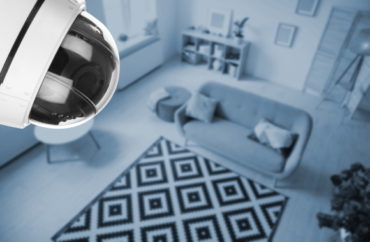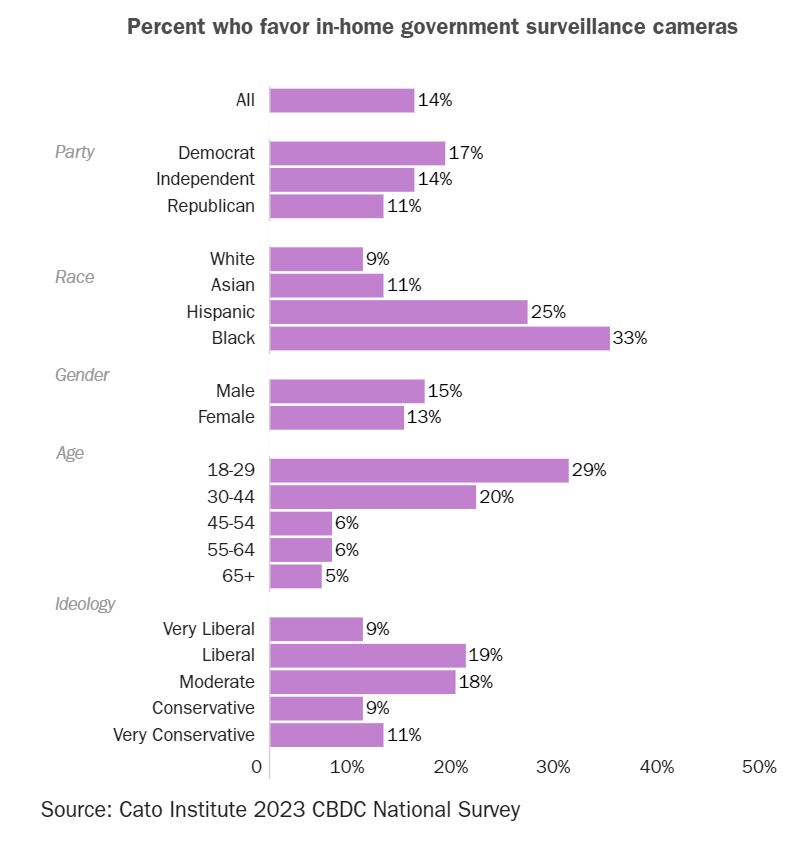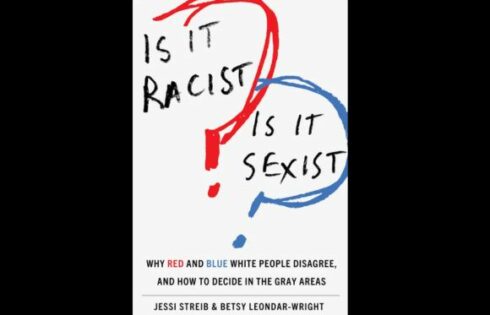
‘Young people seem more willing to prioritize safety over ensuring robust freedom’
Roughly three in 10 Americans under 30 favor “the government installing surveillance cameras in every household to reduce domestic violence, abuse, and other illegal activity,” according to the results of a new Cato Institute survey.
“We don’t know how much of this preference for security over privacy or freedom is something unique to this generation (a cohort effect) or simply the result of youth (age effect),” Cato reported. “However, there is reason to think part of this is generational.”
Cato conducted its 2023 Central Bank Digital Currency National Survey of 2,000 Americans in collaboration with YouGov from February 27 to March 8. It included a wide swath of ideologies, ages and other demographics.
One question asked: “Would you favor or oppose the government installing surveillance cameras in every household to reduce domestic violence, abuse, and other illegal activity?” Overall, most respondents were against the idea:
Strongly favor 6%
Somewhat favor 8%
Neither favor or oppose 10%
Somewhat oppose 7%
Strongly oppose 68%
While the younger generation tends to favor the idea, support declines with age, “dropping to 20 percent among 30–44 year olds and dropping considerably to 6 percent among those over the age of 45,” Cato reported.
“… It is also possible that increased support for government surveillance among the young has common roots with what Greg Lukianoff and Jonathan Haidt describe in the Coddling of the American Mind: young people seem more willing to prioritize safety (from possible violence or hurtful words) over ensuring robust freedom (from government surveillance or to speak freely).”
The survey results also found that, when broken down by ethnicity and ideology, minorities and the center-left are more open to government surveillance than other categories.

“African Americans (33 percent) and Hispanic Americans (25 percent) are more likely than White Americans (9 percent) and Asian Americans (11 percent) to support in‐home government surveillance. Democrats (17 percent) are also more likely than Republicans (11 percent) to support it but not by a wide margin,” Cato reported.
The libertarian think tank pointed out that it asked the question about home surveillance as part of its survey on Central Bank Digital Currencies “to see whether there is a relationship between opinions on the government issuing a central bank digital currency and government installing cameras in homes.”
“It appears that the two opinions are correlated. Interestingly, more than half (53 percent) of those who support the United States adopting a CBDC are also supportive of government surveillance cameras in homes, while only 2 percent of those who oppose a CBDC feel the same,” the institute reported.
“This suggests there may be a common consideration that is prompted by both issues. Likely, it has to do with willingness to give up privacy in hopes of greater security.”
The margin of error for the survey is plus or minus 2.54 percent.
MORE: Over one-third of white Democrat college-educated women say men can get pregnant
IMAGE: Main, New Africa/ INSIDE: Cato Institute
Like The College Fix on Facebook / Follow us on Twitter






Please join the conversation about our stories on Facebook, Twitter, Instagram, Reddit, MeWe, Rumble, Gab, Minds and Gettr.